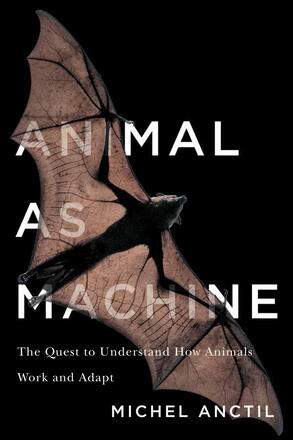
Animal as Machine
The Quest to Understand How Animals Work and Adapt
Recounting the adventures of natural historians and zoologists who disassembled the machinery and adaptability of animal functions.
Description
Through the ages natural historians have puzzled over how animals work, wavering between a vitalist belief in a soul animating bodily functions and a mechanistic outlook in which animal body parts are seen as pieces of organic machinery.
Animal as Machine explores the life, work, and ideas of scientists who, branding themselves as physiologists, subscribed to mechanistic concepts to explain how animals acquire and process food, breathe, circulate their blood, and sense their environment. As medical physiology thrived in the nineteenth century, zoologists struggled to forge their own distinctive physiology predicated on understanding animal functions in a context of environmental adaptation and evolutionary forces. Physiological schools with distinct emphases that shaped their outlook sprang up around the world. Dividing their time between fieldwork in marine stations and laboratory experimentation, animal physiologists stood in awe of the diversity and ingenuity of the functional strategies by which animals survived.
Animal as Machine tells a remarkable and insightful story of the larger-than-life personalities and gripping historical episodes that marked the emergence and blossoming of animal physiology.
Reviews
“Animal as Machine is a good read for both historians who are interested in physiology and animal enthusiasts wanting to learn more about how an experimental, comparative approach has historically developed in the field of physiology. As Anctil argues, the knowledge being produced in this field promises to be fundamental for some of the challenges we humans face today. Learning from animals and adapting their capabilities to our health have always been goals of comparative animal physiology, as Anctil shows throughout the book. And, as he argues at the end, these continue to be important reasons to support the ongoing development of the field.” H-Sci-Med-Tech
“In the superb Animal as Machine, the author explains the seemingly persistent and puzzling dichotomies of physiological (and zoological) research. Anctil unveils the history of comparative animal physiology from its beginnings to its modern status as a major scientific discipline that has revealed amazing things about animal life. Highly recommended.” Choice